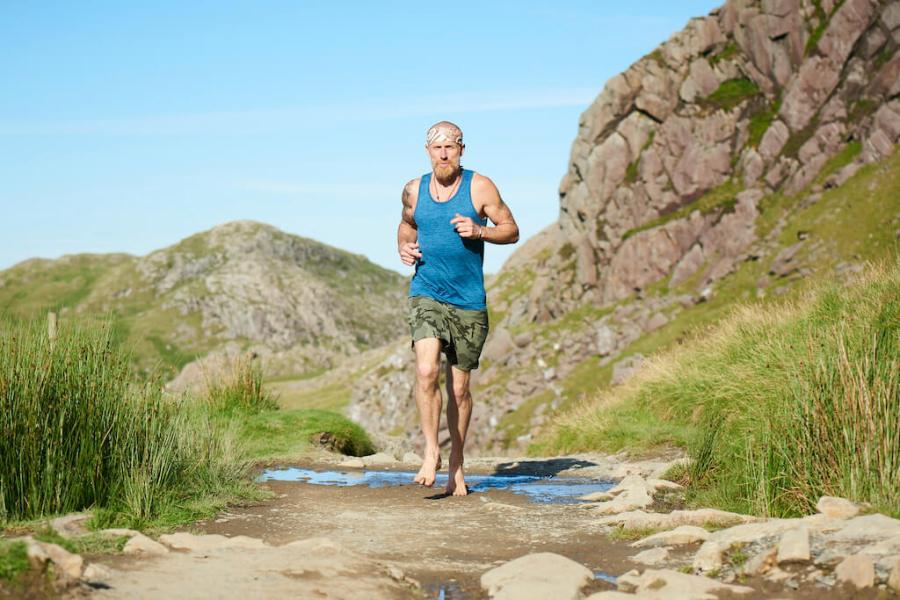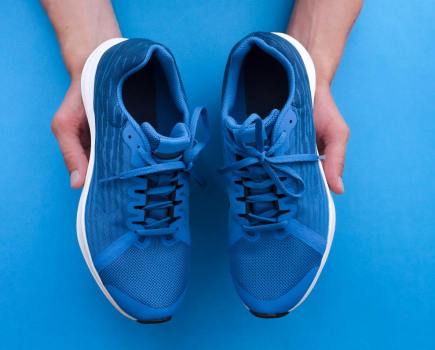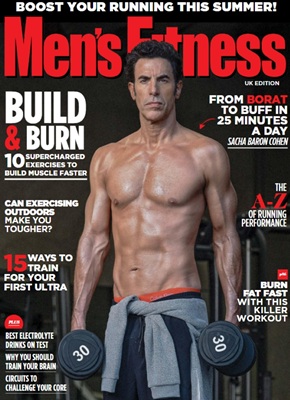Tony Riddle has set a new men’s record for running the Three Peaks Challenge barefoot. He tells MF how he built the mind, body and feet to make it possible.
Running up Mount Snowdon (1,085m) in Wales, Scafell Pike (978m) in England and Ben Nevis (1,345m) in Scotland would be an awe-inspiring feat in its own right.
To do so with nothing on your feet, while running the hundreds of miles between each mountain, would be impossible to comprehend.
But that is exactly what Tony Riddle, a 45-year-old ultra runner from London, achieved earlier this month: conquering the iconic Three Peaks Challenge completely barefoot.
Having set out on 29 August 29, donning a pair of Vivobarefoot trainers – to simulate ‘natural’ running – Riddle finished his 450-mile journey in a new men’s record of 9 days, 7 hours and 18 minutes.
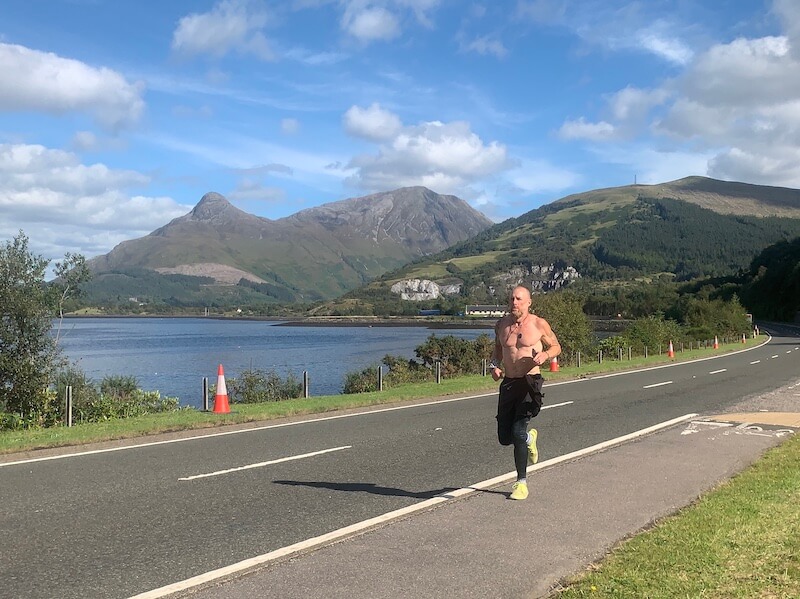
Tony, what inspired this extraordinary challenge?
“Last year I ran 874 miles, barefoot, from Land’s End to John o’ Groats.
“I took September out and ran 30 miles a day, for 30 consecutive days. That was the ignition. But running barefoot on tarmac is brutal.
“I am quite a romanticist about barefoot running, but in nature the terrain is forever changing. You are always getting different feedback, which means the muscular and tendon actions are different and the loading points are different.
“But on tarmac if you are hitting the road for hours it starts to create supination or pronation issues. With barefoot running in nature, you develop amazing gel pads on your feet. But on tarmac, there’s no repair time. The tarmac just wears away the pads of my feet.
“But I realised if I did the climbs barefoot I could wear Vivobarefoot on my feet for the bits in-between, which allows them to respond how nature intended – only with a 3-4mm protective layer.”
Just how tough, physically, was the Three Peaks Challenge?
“If someone said to me, ‘I’m going to give you an inflamed achilles, ruin your sleep for days, give you a stomach bug which leaves you vomiting and messing your pants, and you’ve got all that going on for nine days,’ that would be hard enough in itself.
I had to deal with all that, before you even consider the small task of running 450 miles!”
What unique challenges did the three mountains provide?
“It feels almost like Snowdon and Scafel train you for Ben Nevis.
“I flew up Snowdon in one hour, 49 minutes. Up and down. Bam! Just bouncing off the rocks felt amazing. But after Snowdon, plus 48 miles on the first day, a 50-miler and then a 52-miler, when I came to Scafel it was like someone had robbed me of all elasticity.
“So it was really brutal. I came up with a new word called ‘brut-iful’: beautiful and brutal at the same time. And I sobbed at the top.
“On Ben Nevis I had swelling on the feet and ankles. The ascent is really steep and relentless, and it’s just sharp and edgy and cold. We had -3 conditions and 40mph winds and rain. But what humbled me was just how beautiful it all was.”
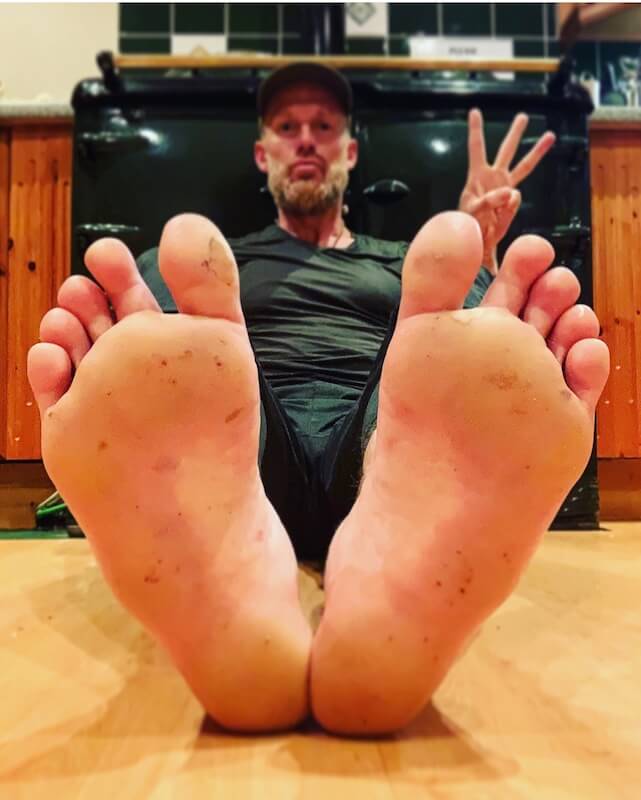
Can you touch on some of the benefits of barefoot running?
“‘Runner’s knee’, ITB and achilles problems all come in because the tendons don’t understand their roles any more.
“The American College of Sports Medicine shows that 70 per cent of runners give up through injury. It’s a really weird stat because we’re sapiens and our anatomy is designed for running.
“So why do we get injured?
“It seems the more you sit, the more you compromise your natural running style. The second part is footwear.
“There are 33 joints, 26 bones and over 100 muscles, tendons and ligaments in your foot. But modern shoes compromise the loading points and balance points of the foot. So it’s important to develop a more natural running technique.”
Why is barefoot running so important to you personally?
“I have a huge natural lifestyle philosophy, but most of that information comes from indigenous people. Around five per cent of the world’s population are indigenous and they look after 80 per cent of the world’s biodiversity.
“So I wanted to do this for Survival International, who protect indigenous tribes.
“As a natural lifestyle coach, I align things with ways of living that are in sync with human biology. We don’t sit in chairs at home, we sit on the floor, so I don’t need to do mobility work as I am not suffering the same strains as people who follow sedentary behaviour.”
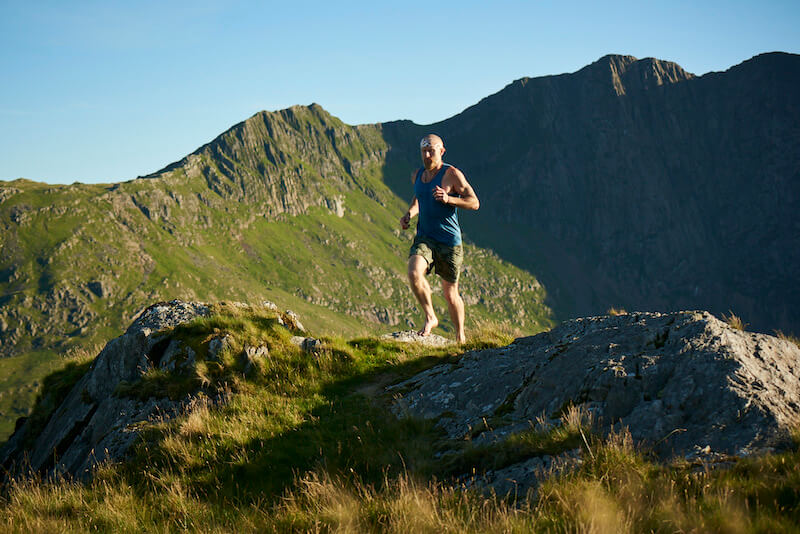
How did you train for this?
“Every bit of training has always been about refining my running form and getting a natural balance between my muscles and tendons, which gives you this lovely elasticity. It is much more efficient.
“So I was mainly working on technique. Once you have that, you can keep building mileage. I am big on breath work, too. I nasal breathe when I’m running. That helps with vasodilation, blood pressure, bronchial dilation and the efficiency of the lungs. But it also keeps you in a state of mind that is much calmer.
“When you keep honing your technique and breath, you can tune into something else, instead of the pain. I also do a lot of crawling work and resting squats which will help you with dorsiflexion, knee stability, hip mobility and postural framework.
“I do a fair bit of jumping and plyometric work, too, because that helps you deal with the forces that are involved in running.”
How did you fuel your performance?
“In training I was doing marathons before breakfast – no food, no water – which helped with my efficiency. But on the challenge itself I’d start with chia seeds soaked in homemade almond milk. with blueberries, bananas and nut butter.
“Then I’d have a smoothie prepped, which was a blend of Motion Nutrition – a plant-based, organic protein – with two bananas, two avocados, spirulina, chlorella, turmeric, celery and cucumber.
“I had lots of soups, too – fatty soups with coconut oil, coconut cream and buckwheat noodles blended in – which are really easy on the digestive system.
“In the evenings I’d have some wild meat like venison and boar, but I am 95 per cent plant-based.”
What’s your next challenge?
“I have big plans, but I’m not quite ready to reveal them.
“Here’s a teaser: it’s a bit like Everest – with a difference.”
For more information visit tonyriddle.com and vivobarefoot.com/uk
Interview: Mark Bailey

